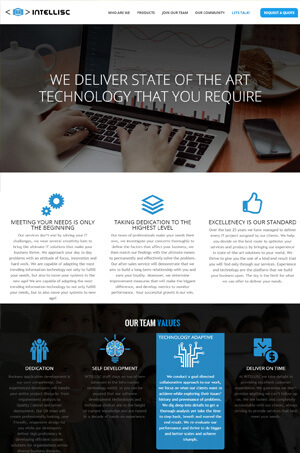
In the fast-paced era of technology, businesses are constantly adapting to keep up with changing trends and consumer behavior. With the advent of the digital age, the significance of strategic digital marketing has become increasingly apparent. In this article, we explore the power of strategy in
digital marketing and its potential to transform businesses.
Effective digital marketing strategies are essential for businesses to boost their online presence, engage with their target audience, and drive conversions. No longer can companies rely solely on traditional marketing approaches to stay competitive in today's digital landscape. A well-executed digital marketing strategy can generate substantial revenue, enhance brand awareness, and foster stronger customer relationships.
To begin, understanding the target audience is crucial. Consumers are bombarded with a deluge of digital content daily; thus, businesses must ensure that their message stands out amidst the noise.
Conducting thorough market research to identify the target demographic, their preferences, and behavior provides valuable insights to tailor strategies specifically to their needs.
One such strategy gaining immense popularity is content marketing. By consistently creating relevant and engaging content, businesses can establish themselves as industry thought leaders and build trust with their customers. Engaging content that educates, entertains, or adds value to the lives of consumers is more likely to resonate and be shared, driving organic growth. Moreover, incorporating Search Engine Optimization (SEO) techniques empowers businesses to attract qualified leads and enhance their online visibility.
The rise of social media platforms has revolutionized the way businesses connect with their audience. With billions of active users across various social media channels, brands can leverage these platforms to build brand awareness, drive traffic, and engage with their customers in real time. Crafting a thoughtful social media marketing strategy, tailoring content to each platform, and utilizing paid advertising tools can amplify a company's reach and improve conversion rates.
Personalization is another key aspect of successful digital marketing strategies. Consumers today demand individualized experiences and expect businesses to understand their unique preferences. By harnessing the power of data analytics and customer segmentation, businesses can create personalized marketing campaigns that capture the attention of their target audience. Personalization not only enhances customer satisfaction but also increases customer loyalty, resulting in repeat purchases and positive word-of-mouth referrals.
Embracing the rapid technological advancements, businesses are increasingly incorporating artificial intelligence (AI) in their marketing strategies. AI algorithms can analyze vast amounts of data, predict consumer behavior, and optimize marketing campaigns. Chatbots, one popular application of AI, provide businesses with round-the-clock customer support and assistance, improving customer experience and driving sales.
Moreover, influencer marketing has emerged as a powerful strategy to expand a brand's reach and credibility. Capitalizing on the followership and influence of
individuals with a substantial social media following, businesses can tap into new markets and foster authentic connections with their target audience. Collaborating with influencers who align with their brand values can significantly impact consumer purchasing decisions.
With so many digital marketing channels available, businesses must allocate their resources strategically. This is where performance tracking and analytics play a crucial role. By monitoring key performance indicators (KPIs) and analyzing data, businesses can gain insights into the effectiveness of their strategies. Such insights enable them to make data-driven decisions, optimize campaigns, and achieve a higher return on their marketing investment.
In conclusion, the power of strategy in digital marketing cannot be underestimated. Embracing a strategic approach allows businesses to navigate the digital landscape effectively, increase brand visibility, and drive conversions. By understanding the target audience, embracing content marketing, utilizing social media platforms, personalizing campaigns, harnessing AI technology, leveraging influencer marketing, and tracking performance metrics, companies can unlock the true potential of digital marketing and achieve sustainable growth in today's fast-paced online world.
